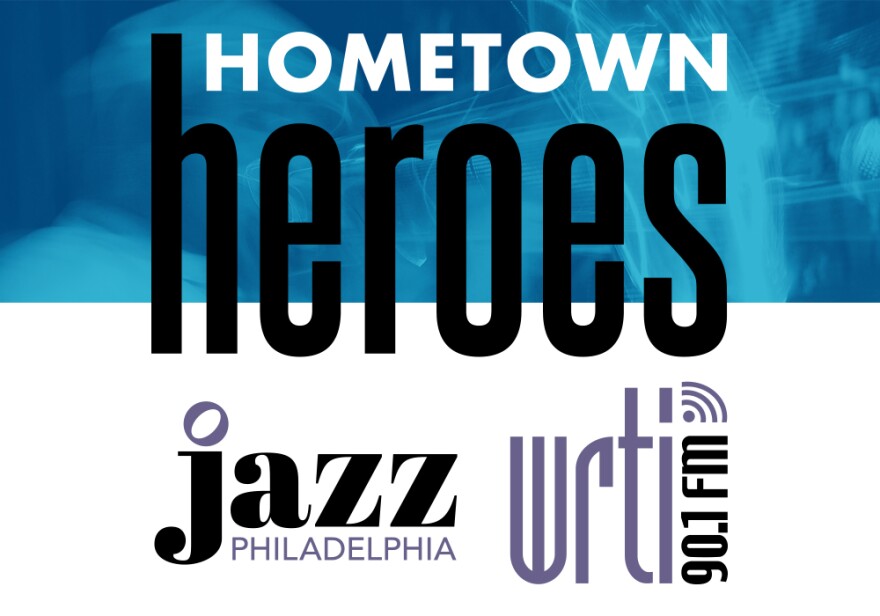As Philadelphia’s fifth Poet Laureate, Trapeta Mayson merges her love of art with her love of community through words often accompanied by jazz music. Her poems often reflect her life story: born in West Africa, raised in North Philly, and now a licensed clinical social worker residing in Germantown.
“Philadelphia is home,” shares Mayson. “I immigrated to this city with my family and my siblings when I was just a young person in elementary school in the 70s. Philadelphia is where I grew up. This is the place that embraced me, and this is where I still live and thrive. So my relationship with the city is complicated, but it is one of those loving, complicated relationships. I would say it’s a dual home because I still consider myself very much a daughter of this place as much as I consider myself a daughter in Liberia.”
Mayson has long been committed to the power of poetry to engage and inspire people throughout Philadelphia’s neighborhoods. Her words honor the immigrant experience while upholding the day-to-day struggles of everyday people.
“I came into my own in Philadelphia, as a woman, as an artist, and as a person who’s wrestling with injustices on all different levels,” Mayson reflects. “Philadelphia has really shaped me in my growth and, I would say, the biggest thing is this voice. I grew into a confident and poetic voice, a voice that is really interested in social change in a positive way in our communities. Philly provided the blueprint and the foundation stories. It is a great city that made me an artist with a strong voice who wants to really be a part of and advocate for the community.”
In addition to her long career as a poet, author and educator, she has released two music and poetry projects—SCAT and This Is How We Get Through—in collaboration with internationally acclaimed jazz guitarist Monnette Sudler.

“There’s such mutual appreciation and respect. Many jazz artists are writers themselves, and the sensibilities are there, the imagery, all these things,” Mayson explained. “When I collaborate with Monnette, I’m very much conscious of the desire to match that level of excellence, and I want to make sure that I’m up on my game. And I think that’s what interacting and engaging with jazz musicians will do. They almost invite you to be flexible and to be creative and will be very open, so there’s a lot of give and take. And that’s what I enjoy the most, but you have got to come correct.”
Last year, the poet pondered ways to combine performance with Covid-safe dissemination. The final product resulted in the recent launch of the Healing Verse Philly Poetry Line (1-855-763-6792), a toll-free telephone line that offers callers a 90-second poem by a Philadelphia-connected poet.
“Since its inception, we’ve gotten hundreds of calls, so it’s pretty popular,” notes Mayson. “Although it’s intended to support the Philadelphia region, a lot of people are calling from other places in the nearby tri-state area and beyond, with calls from Atlanta and a number of places. So it’s been quite interesting.”
Although she works full time, she is compelled to use poetry to promote healing with hundreds of youth and adults in schools, cultural institutions, correctional facilities, shelters, and numerous other community venues across Philly.
“It’s how you choose to get involved in the community that determines what it will produce for you,” says Mayson. “Give the city some love, and the city does love you back. So there are many ways to do that—and I like to tell these stories that highlight and amplify the folks that I come into contact with every day.”


